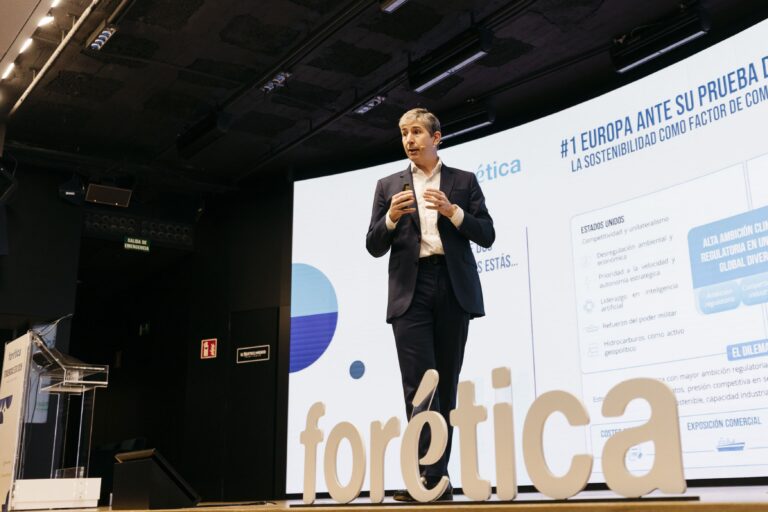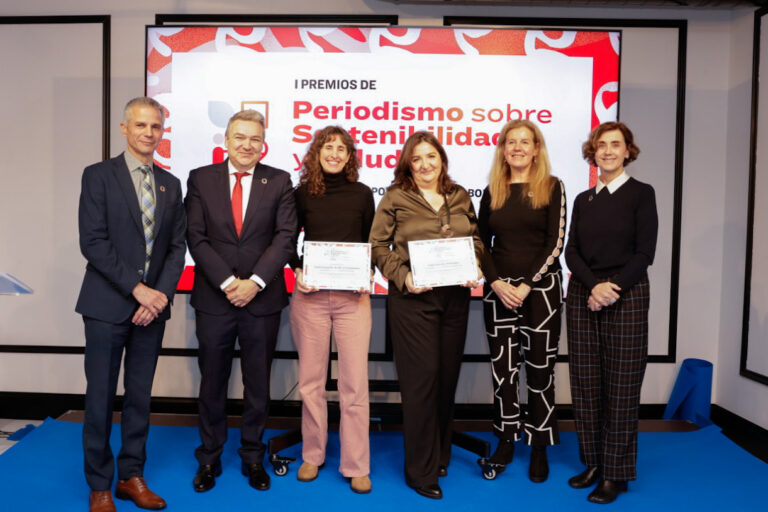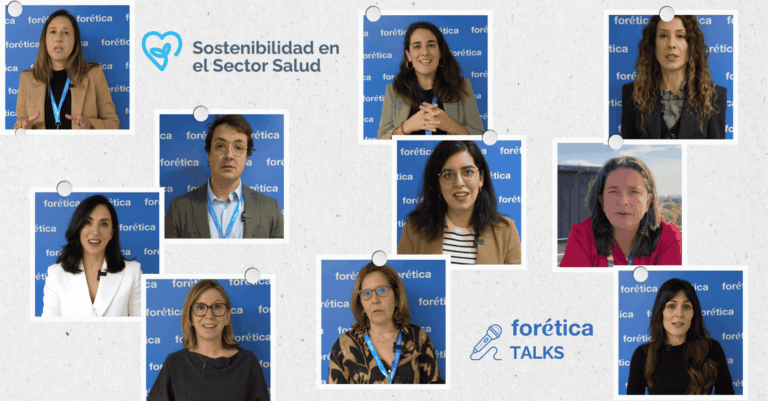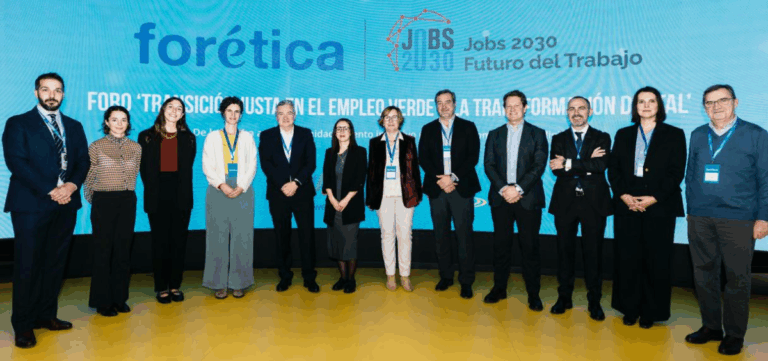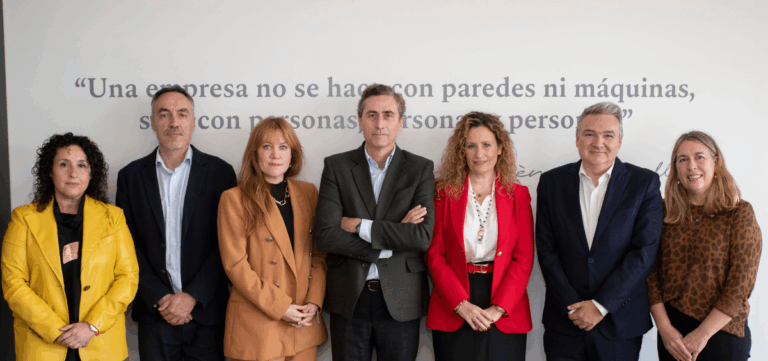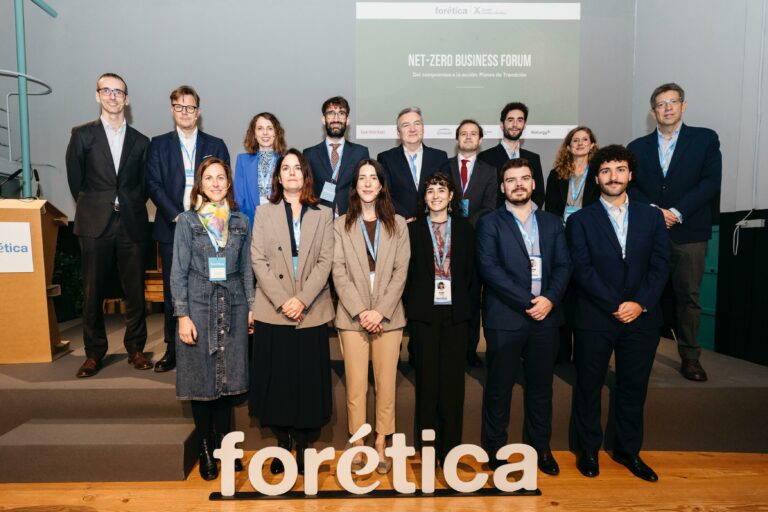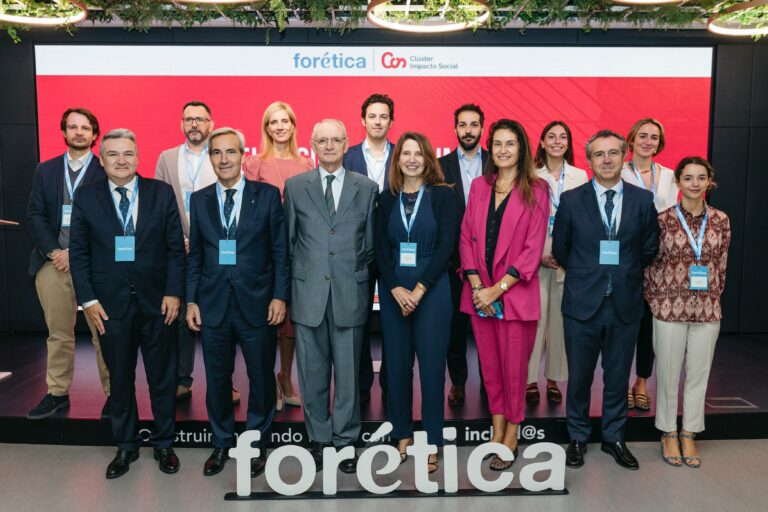Forética presents the report 'ESG Trends 2025. Keys to the corporate sustainability agenda'.. The document includes the key aspects that will focus the action of organizations in 2025 in environmental, social and transparency and good governance (ESG), and also highlights the focus of attention to prioritize a practical business action towards sustainable development, impact and linked to competitiveness.
In its now traditional trends report, Forética identifies five key trends in sustainability in 2025: regulatory disinflation at the European level to reduce regulatory pressure without forgetting the main objectives in terms of sustainability; complexity in reporting systems following the CSRD directive and the impact of the Omnibus package; greater involvement of the conscious consumer and the fight against greenwashing; acceleration in the climate adaptation plans of companies and governments; and the transition to zero net emissions in a complex geopolitical environment.
The study analyzes the milestones that will guide corporate agendas at a time when sustainability is becoming increasingly important. The events of 2024 in the political, environmental and social spheres have highlighted the need to evolve towards responsible economic models that are capable of anticipating future challenges and in which companies take a leading role in contributing to achieving a sustainable transformation.
In turn, Forética highlights a series of recommendations on sustainability in terms of corporate action. These include greater involvement of public affairs departments, a continuous review of reporting models in the face of future regulatory changes, a focus on the fight against greenwashing through the coordination of Marketing, Business and Sustainability, the review of transition plans in the face of the chronification of physical risks and, finally, the adaptation of transition narratives in the most hostile public environments.
In order to promote this transition and maximize the positive impact of organizations, Forética will continue to work in 2025 in three areas of action: Environmental(climate change, nature, circular economy and cities), Social(social impact, future of work and volunteering from companies), and Good Governance(transparency and good governance, sustainability and CSR in public companies and the ethical and socially responsible management system according to the SGE 21 Standard). In addition to other cross-cutting projects such as initiatives on sustainable food systems, responsible artificial intelligence and sustainability in the health sector. Forética also leads the Spanish Business Council for Sustainable Development, made up of 50 presidents and CEOs of large companies, as a high-level business meeting point.
You can download here the report ESG Trends 2025. Keys to the sustainability business agenda' here and more information by contacting Forética's Communication Department.
ANNEX. The 'ESG 2025 Trends and Key Issues' report in headlines.
Trend 1: Recalibration of the level of corporate regulatory requirements
- The tightening of the regulatory environment by the European Union has generated significant compliance risks.
- The EU seeks to harmonize the CSRDD, the CSDDD and the regulation on the taxonomy of sustainable finance, thus opening a stage of regulatory disinflation.
- What to focus on: In 2025, companies will need to continue to strengthen sustainability governance in an environment of increased uncertainty.
Trend 2: Complexity in reporting systems following the CSRD Directive
- The CSRD seeks to standardize reporting to make it comparable across companies and sectors. In 2025, companies will publish their first reports based on the CSRD reporting standards.
- CSRD compliance has a direct impact on the governance of companies and requires the adaptation of some key processes.
- What to focus on: During this year, the focus will be divided on three fronts: top priority of first CSRD-based reporting for obligated organizations, transposition of the directive and damage control in each negotiation process of the Omnibus package.
Trend 3: The evolution of the conscious consumer
- Sustainability is a priority for Spanish citizens. 84.2% of the population demands that organizations behave responsibly towards society and the environment.
- Despite political polarization, 80% of citizens believe that sustainability is not linked to any particular ideology.
- What to focus on: Companies should adapt their communication around ESG aspects to consumers to improve the credibility of their claims and avoid greenwashing risks. To do so, they will have to strengthen collaboration between all business areas.
Trend 4: Forced adaptation to climate change
- The frequency and intensity of extreme natural events highlights the need for increased adaptation to climate change. The Los Angeles fires, the Dana or the devastation of storm Boris highlight the need to invest in adaptation.
- The business response to climate change will focus on the development of transition plans that aim to achieve systematic emission reductions and increase the importance of adaptation.
- What to focus on: Transition plans will need to advance and evolve to respond to an environment of increased physical risk. Organizations will need to broaden their understanding of biodiversity and its relationship to climate change, which means broadening net-zero objectives and strategies to incorporate nature positive approaches.
Trend 5: Transition to net-zero emissions with an anti-environmentalist political landscape
- In his second term, Donald Trump could delink the United States from the United Nations Framework Convention on Climate Change (UNFCCC).
- Despite the anti-climate rhetoric of the new U.S. administration, the transition and decarbonization agenda will continue.
- Beyond climate, companies and investors will focus on catalysts such as electrification, renewables competitiveness and energy security.
What to focus on: Collaboration with local governments and communities on infrastructure development will facilitate social and economic growth and enable us to respond to increased energy demand.



